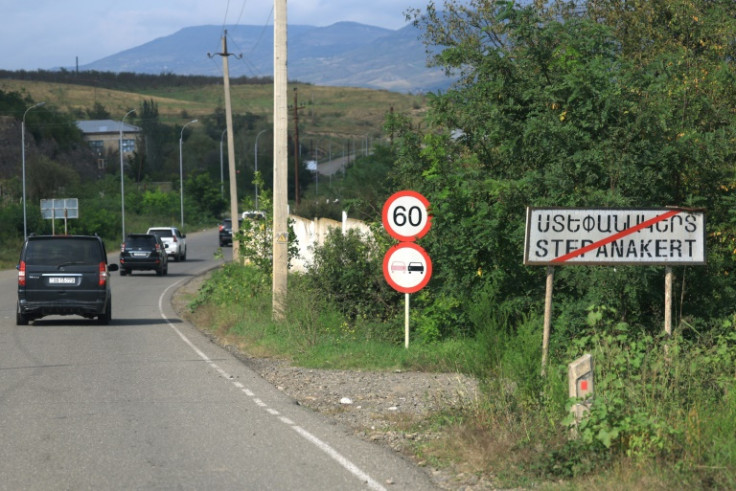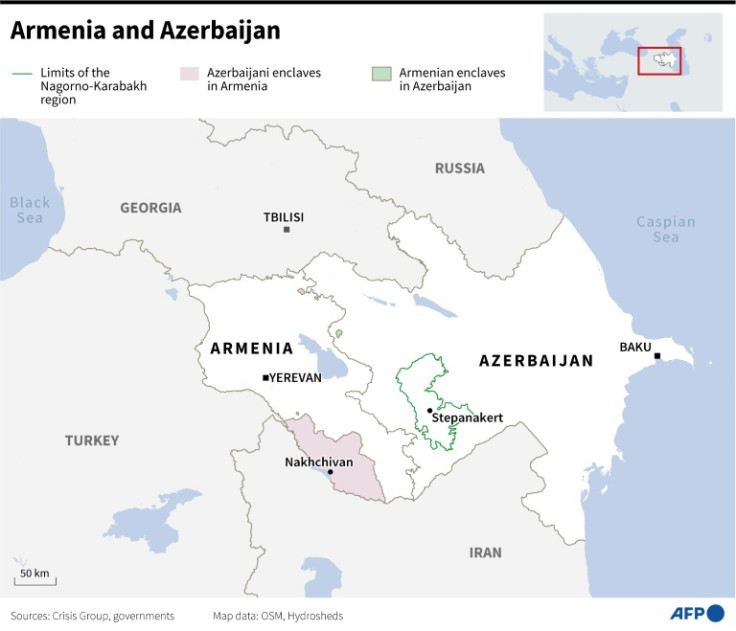
Azerbaijan and Armenia will fight out a long-running "ethnic cleansing" dispute at the top United Nations court from Monday, just as military tensions are ramping up between the historic enemies.
Robed lawyers from the two countries embark on two weeks of hearings, wrestling over interpretations of international law in the gilded Peace Palace of the International Court of Justice.
Meanwhile, the two traded accusations earlier this month of opening fire along their volatile shared border, dimming hopes of a lasting peace deal after decades of sporadic fighting.
The legal battle before the ICJ dates from September 2021 when both sides filed tit-for-tat suits against each other within a week.
Both sides accused the other of "ethnic cleansing" and of violating the International Convention on the Elimination of All Forms of Racial Discrimination (CERD).
The ICJ, which rules in disputes between states, issued emergency orders in December 2021, calling on both parties to prevent incitement and promotion of racial hatred.
But while the ICJ's orders are binding, it has no enforcement mechanism and tensions grew, culminating in Azerbaijan's lightning offensive last September in the disputed territory of Nagorno-Karabakh.
Baku reclaimed Karabakh in the one-day offensive, prompting the enclave's entire ethnic Armenian population -- more than 100,000 people -- to flee for Armenia.
Just weeks afterwards, Armenia returned to the ICJ, urging the court to order Azerbaijan to withdraw its troops from Karabakh and allow Armenian refugees to return home safely.
In November, the court ordered Azerbaijan to allow anyone wishing to return to Karabakh to do so in a "safe, unimpeded and expeditious manner".
The latest hearings in the marathon dispute start on Monday and run until April 26.
They concern objections raised by both parties to each other's original cases filed in September 2021.
Armenian Prime Minister Nikol Pashinyan and Azerbaijani President Ilham Aliyev have said a comprehensive peace agreement is within reach after last year's offensive in Karabakh.
The former Soviet republics have fought two wars for control of the mountainous region -- most recently in 2020 and in the 1990s amid the break-up of the Soviet Union -- that have claimed thousands of lives on both sides and caused hundreds of thousands to flee.
The conflict has also strained ties between Russia and ex-Soviet Armenia, with Yerevan considering that Moscow did not do enough to help when it was under attack.
In February, Armenia formally joined the International Criminal Court (ICC), despite Moscow warning against the move.
It is now obliged to arrest Russian President Vladimir Putin if he sets foot on Armenian territory under an ICC arrest warrant issued for the Russian leader in March 2023.








